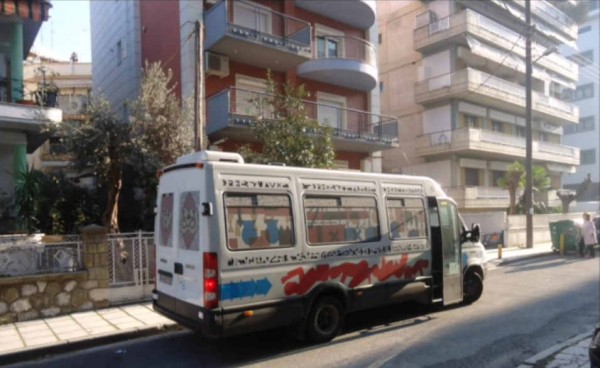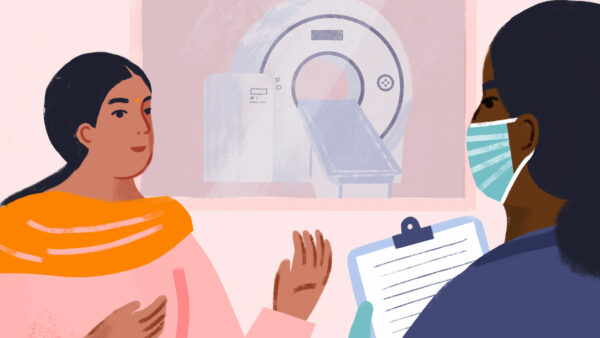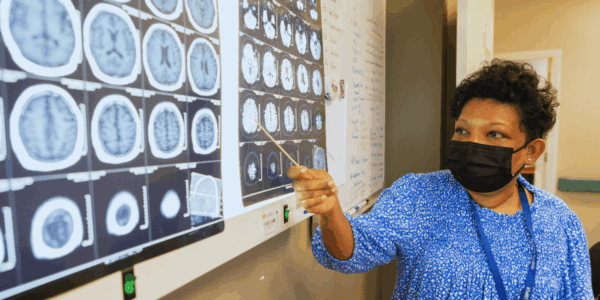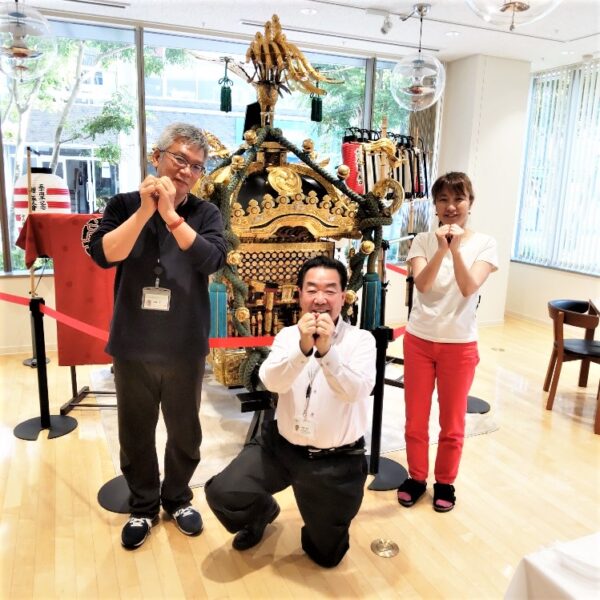Vassiliki’s story – access to education in Greece
The Social Services Committee of the University and the Organisation of Urban Transportation of Thessaloniki (OUTT) worked with the Greek MS Society, to give Vassiliki the support she needed. This had a great impact on other students with disabilities, giving them inspiration and practical help to access all of the University services and facilities.
The Greek MS Society spoke to Vassiliki and key staff members at the university and OUTT to find out how they’ve worked together to break down the barriers to access in the last 12 years.
OUTT helps people with disabilities in Thessaloniki to get around. 80% of their vehicles are now specially adapted for wheelchair users and people with disabilities. In 2005 they introduced a free service to help people with disabilities travel around Thessaloniki. Vassiliki uses the service almost every day.

The university has an Accessibility Office that’s responsible for ensuring all areas of the campus are accessible. For example, they built a special ramp so that Vassiliki could participate in her PhD graduation ceremony. The university believes that every student should have equal opportunities to access attendance and healthcare. Up to five percent of the university’s annual budget is spent on making sure this happens.
Vassiliki has now lived in Thessaloniki for 12 years, during which time she’s achieved her undergraduate degree, MsC and PhD. Her doctoral thesis was on Physical Activity
Rehabilitation and Quality of Life for people with MS. Her post-doctoral work focuses on Special Adapted Physical Education Neuroscience and Rehabilitation.
Vassiliki has been connected with other people with disabilities in Thessaloniki and she’s working closely with the university to improve the facilities. Vassiliki was responsible for the scientific planning of exercise programmes for people with disabilities at the university sports centre. She’s now a scientific researcher at the First Neurology Department at the University Hospital of Thessaloniki.
The changes that enabled Vassiliki to get to her undergraduate classes have had a huge impact. Vassiliki’s career is now helping other people with MS, something that couldn’t have happened without the initial barrier to access being removed.
“Access at the university has gotten much better over the years, but there are many things that must change”. Vassiliki isn’t just hoping for change, she’s actively working towards making the university accessible to everyone.
The video shows some of the people who ensure that that the university campus is fully accessible to Vassiliki, as well as staff, students and visitors.
<iframe width=”560″ height=”315″ src=”https://www.youtube.com/embed/8ry-KSfmDTU” frameborder=”0″ allowfullscreen></iframe>
Related news
The McDonald criteria for diagnosing MS have been updated to speed up diagnosis and improve accuracy. But what do the…

Diagnostic criteria are guidelines used by clinicians to diagnose MS. They include a specific combination of signs, symptoms and test…

The MS Heart is a symbol of solidarity for everyone affected by MS. This year we ran the MS Heart…
